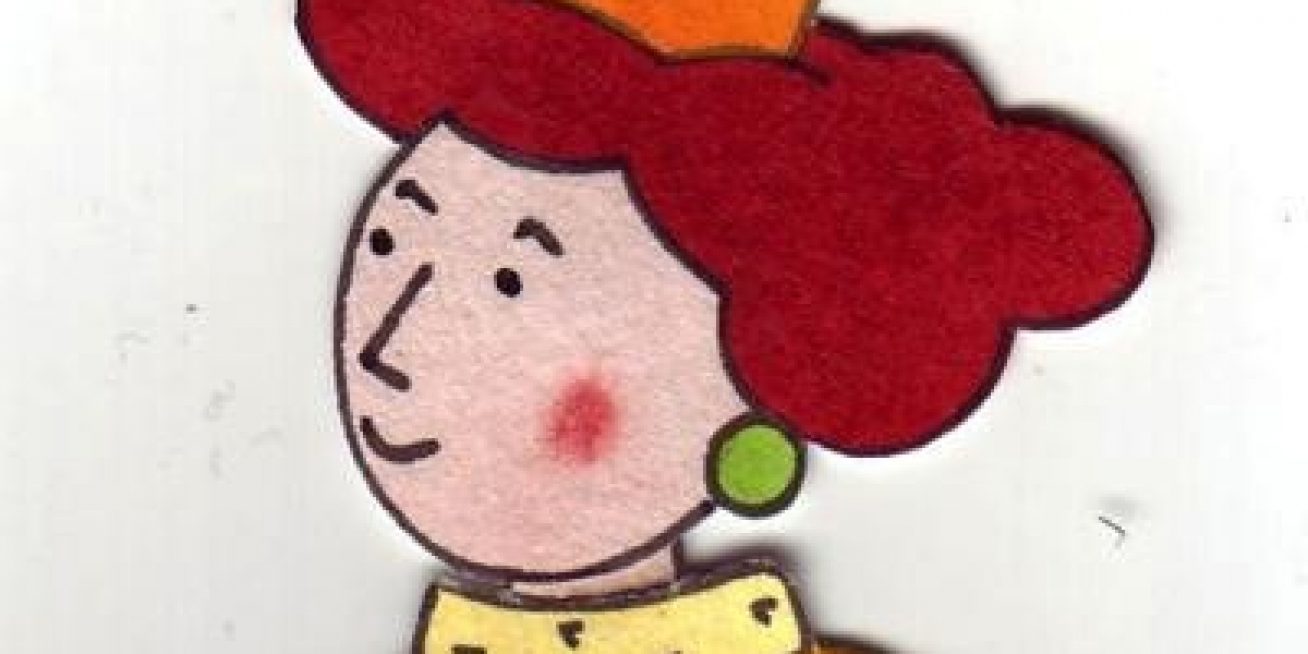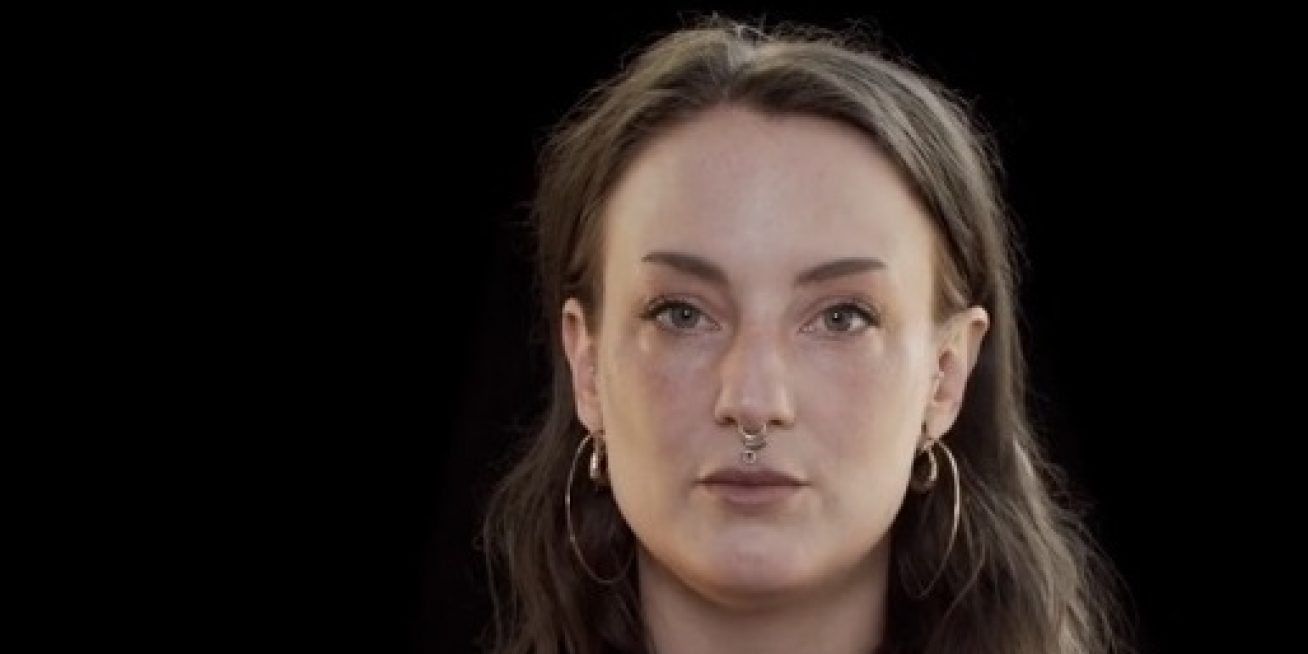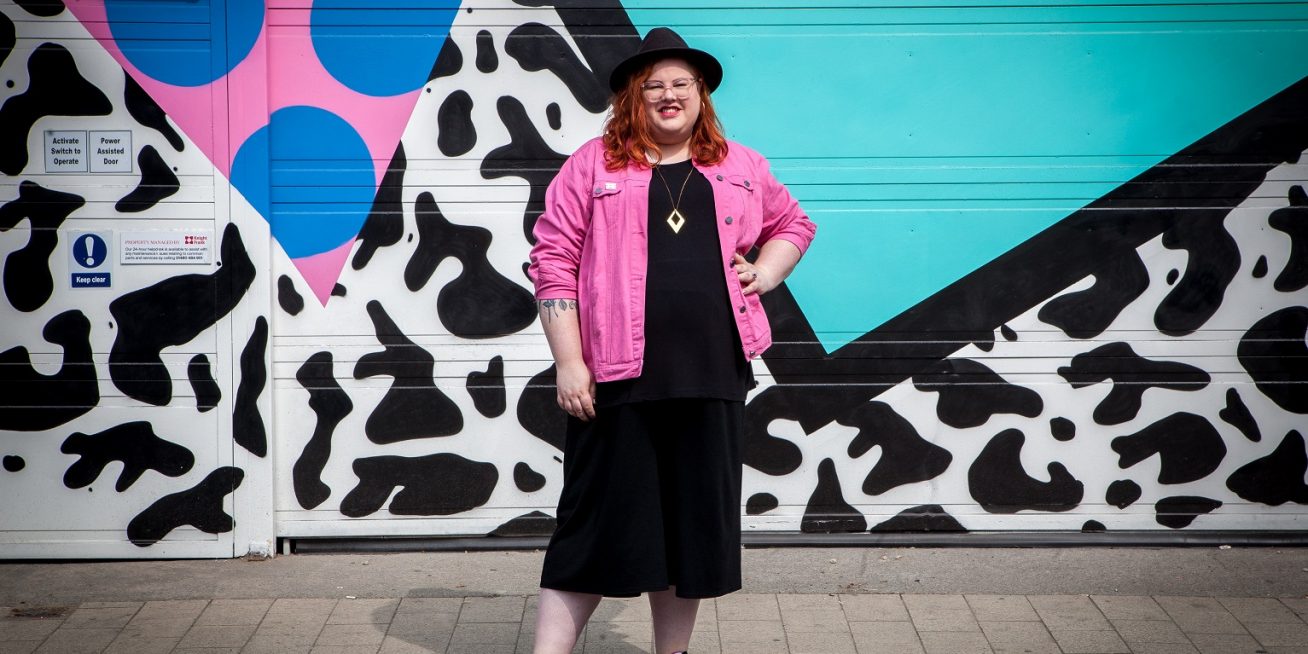'For the record...'
Ajamu X talks about his upbringing in Huddersfield, his nights out in the area as a young queer black man, and his work and study on the subject of black/queer archiving.
TRANSCRIPT
AJAMU: For the record, I’m Ajamu. I was born in 1963, October in Huddersfield, and my birth name is actually Carleton Cockburn, however I changed my name during the late 80s, and I’m currently living in London and I’ve been for the last 30 years. And my pronouns is he/them, [unclear] queer.INTERVIEWER: Okay, perfect, thank you. And before we get onto the serious stuff, I need to get the inquisitive stuff off my chest, Ajamu. What does a queer black punk photographer like yourself do in lockdown? Do you take dirty pictures all the time?
AJAMU: No, I am busy with my PhD work [laughs]
INTERVIEWER: That’s, tell us about your PhD.
AJAMU: So, basically I’m – my PhD is currently called Dark Room Matter and I’m basically, I’m rethinking the photographic darkroom and the sex darkroom as archives, yeah, in how these places kind of hold memories. And the work I will be working with is objects that people have made or constructed to have pleasure with. And I’m also working with wet plates, which is kind of a 19th century printing process, and so basically a lot of my work is how do we rethink the archive and, basically I’m, I kind of come from the place that actually a lot of the work around black and queer archives, including some of my early work around the archive, is kind of locked into kind of representation and identity politics. And I’m saying, well actually we have to account for things around sensuousness, tactility, touch. It’s because, my claim is that the black queer body is always already an archive anyway and we embody memories, emotions; our nipples and dicks and arses are also archives. And so basically it’s kind of how, how do we rethink the archive outside of space and location and to something that’s more sensitive, more fleshy? It’s because basically a lot of the amazing work around archives historically don’t talk about the materials in the archive. It’s about power structure, decolonisation of these all things around the archive, and so my thing y’know is what is the archive doing?
INTERVIEWER: Is that partly because, a result of your practice as a photographer? Or as your practice as a black queer person? How – and living, living as a practice? Where do these ideas, where does the importance you place on embodiment come from?
AJAMU: Well, basically I – the actual… It comes from, I think – no, no, no. There is a resistance in the wider culture talking about pleasure and the erotic, yeah? And the more that you then drill down, I, I’m, I think that actually, if you talk about let’s say… Photography, right, yeah, right? It’s because lots of black and brown work is looked through the lens of, it’s content, it’s something cultural. What it excludes is process and making. And to me the act of pleasure has to then be part of the conversation around making work or creating something, yeah right? And then my notion of the erotic comes out of kind of my… Audre Lord’s work… whereby she talks about, and the erotic is not a question of what we do, it’s how acutely we are aware in the doing, so when actually, I think then actually if and when one is attuned to the moment or to what’s happening, it means that actually the [unclear] with the body and the skin and the flesh. And then in part, I think then too often our black and brown and queer politics gets locked into what is done to black and brown queer bodies. And it should. And I’m also saying we should also be talking about what we want to be done with and through our own black bodies as well. And then that then is about agency.
INTERVIEWER: Yes, and empowerment, right? This is really interesting – let’s step back to think about West Yorkshire and go back to this idea of the cultural lens. Where did you grow up?
AJAMU: I grew up in Huddersfield. I, I went to, my first school was, [unclear] infants school, and then I went to [unclear] junior, then [unclear] high school, and then [unclear] high school and so basically, it was kind of very mixed neighbourhoods. And basically, my parents arrived in ’61 from Jamaica, and then my grandparents actually came to Bradford in about ‘57/’58, yeah, and so – I have three brothers and two sisters who were born and raised in Jamaica and they kind, they, they’re what you call the sent for kids and they were brought over in the 70s. And so we kind of, it had been kind of very… fixed ideas around masculinity and religion and that kind of stuff. And then basically me, around 16 I kind of like being post-punk or rock or goth or whatever, y’know I was that odd black child walking around child, into this weird music, and y’know and I was into wearing soccer boots and mascara and frilly shirts. And, and I’d, and the person I blame for all this, interestingly enough, is Marc Almond from Soft Cell, seeing Soft Cell on Top of the Pops that year, and it triggered that there is, there is something else somewhere else and then of course he was singing about and y’know Soho and London and whatever, it just opened up this window for me, yeah. And the album Non-Stop Erotic Cabaret was the backdrop to, that was just on repeat, repeat and repeat as a weird kind of – and yeah, yeah, and so basically, I kind of left school.
I did catering. I… I did landscape gardening, I was in the Territorial Army. Y’know, I, there’s an image I have that was taken on the day that Charles and Di got married and so I was stationed in Strensall, just outside York. So, really I’m kind’ve I’m – and then, and then joining the TA, (a) because it was something I could do; and also what you had in this kind of early 80s was the rise of the National Front. Right, yeah, right? And basically a handful of us black guys joined the TA to learn how to protect ourselves. It’s because this is where the National Front was getting trained up, in the TA that was in Huddersfield. So when, so when on one level I had my army greens, my boots, whatever, and then the next minute I got mascara and nail varnish on. And be just working this thing through, and so, so that’s when I became part of as a backdrop, and then I… And then those of us who were kind of marked as being different kind of them kind of, the kind of scene that we entered I was kinda like a goth, post-punk, New Romantic scene, and that’s where you’d see kind of, all kinds of people, not just queer, all kinds of folks just seen as different, cos actually I… Freaks always find each other somehow.
INTERVIEWER: Was that still in Huddersfield?
AJAMU: Yeah, yeah.
INTERVIEWER: What clubs did you go to?
AJAMU: So basically, the, the… the goth club was called Charlies, and that was nearby the actual marketplace… I, where I, where McDonald’s is, there was a club called… Highlights, some- something club and that was upstairs, and then there was Johnny’s Club as well, which was kind of… down, down the bottom of town. And then, of course, Gemini club. And so the first time I went to the club was March the 3rd 1983 on a Thursday night.
INTERVIEWER: How do you remember?
AJAMU: Because, this is what archivers do [laughs] [unclear] and so basically the – the thing about the club was I, around the corner from the Gemini club was the [unclear] Street Club, which was a black club, yeah? And so basically I would stand for about three months across the road from the club just to see who was going past, and then this one night I just literally ran across the street. As the door opened, I just ran straight in, and like, I’m here. So and really, so then that first night I met my first lover, Desmond [unclear]. And so basically while I was in lust at first sight, it was also, it was because we were isolated. It’s because at that time, at this point, I… he was, he was the second gay person that I knew, and there was talk around town that there was this other guy called David Wood, bisexual, and so basically Huddersfield is a small town and basically, and these whispers, and so literally I then went searching for David. And so basically, I’d try and find out where he went, which clubs he’d go to, and so it was really this intense, and then because then I had girlfriends as well. So then I was kinda working out am I straight, bisexual, queer, gay or whatever. And so I, this was happening in this very, very small town, and it is a really small town. And the way that I would then leave the town was then to go clubbing in Leeds, New Penny. I’m, I’d, New Penny and there was Rock Shots, and there was God’s Waiting Room, which was another club, I would go, all the gays would go. And then Manchester at the scene, and so really. And then, and then also I went travelling to London and the queens would call me ‘the National Express queen’.






